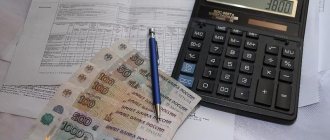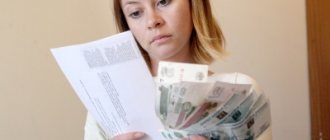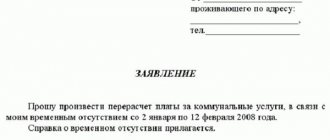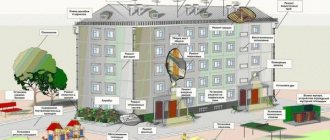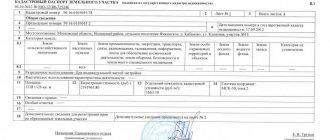According to the law, namely Article 155 of the Housing Code of the Russian Federation, property owners are required to pay rent for residential premises and utilities on a monthly basis no later than the 10th day of the month following the previous month. Basically, payments for housing and communal services are made on the basis of meters, but some indicators are determined based on the number of registered people in the residential premises and the area of the housing. If meters are not installed, then charges in any case are made according to approved standards, based on the number of registered people in the residential premises.
Housing and utility payments depend on:
- housing area;
- tariffs;
- standards;
- the number of registered persons in the residential premises;
- availability of meters.
Types of housing and communal services per month
In order to understand the issue of calculating housing and utility bills, you need to decide what types of services exist. There are currently two types of services:
- utilities;
- housing.
Utility bills are payments for resources. These include:
- hot and cold water;
- drainage;
- sewerage;
- electricity;
- gas;
- heating;
- garbage removal.
Some utility bills are calculated based on meter readings, such as hot and cold water, gas, electricity. Other utility bills are calculated based on the living space, such as heating. You can also install meters to calculate heating.
In apartment buildings, housing services include the maintenance of the common property of the house.
The common property of the house includes areas of the residential building that are not owned by citizens, namely:
- flights of stairs;
- elevators;
- garbage chutes;
- fire escapes;
- balconies;
- halls;
- other common areas.
Owners bear equal responsibility for the common areas of a residential building. Payment for housing services is made based on the area of the owners' residential apartments. If there are collective meters, then the total amount of utility bills for common property is also divided by everyone, based on the area of the apartment.
Who is obliged to pay for housing and communal services: registered persons or the owner?
Conflicts based on disagreements regarding payment for housing and communal services often .
They are especially acute between owners who do not live on their legal premises and people registered in the apartment .
Article 153 of the Housing Code of the Russian Federation defines the following categories that are responsible for paying for the premises:
- owner;
- tenant;
- employer.
From the moment the rental agreement , the obligation to pay falls on the tenant . This fact is confirmed by a social rental agreement from a state or social fund.
The owner is obliged to make payments after registration of ownership of his property with government authorities.
As soon as he becomes the rightful owner of the living space, responsibility comes in the form of paying the debts sent for housing and communal services . The fact of living in another premises does not relieve responsibility for paying for services.
And also this does not relieve responsibility from the registered persons , and the owner may require them to contribute part of the funds through the court .
At the same time the absence of a citizen in the premises for more than five days gives grounds for further recalculation of the amount if the appropriate document is provided.
Share of registered resident
If real estate is in shared ownership all owners must pay for it .
Everyone pays in accordance with the existing share in the housing , and the absence of the owner of part of the property on site does not exempt him from making payments.
If tenants are only registered, but do not own a certain share, then the payment is divided equally between each of them .
What if registered people don't pay?
It often happens that one or more of the registered persons do not want to help the owner pay for housing .
The apartment owner is faced with the question of how can be proven .
The only chance to influence the current situation is to go to court . This must be done at your place of residence .
If the amount of the claim is less than one hundred thousand rubles , then the case will be considered in the magistrate's court .
If the amount is greater , then it will be heard in the district court . The owner in this case will be the plaintiff , and the defendant is the person who is officially registered and uses the resources, but does not pay for them .
As proof, you can provide payment receipts , where the payer’s signature and the bank’s mark on the completion of the transaction to pay for services will be affixed.
What housing and communal services depend on the number of registered people
If meters are not installed in the residential premises, then any utility payments will depend on the number of registered people. In this case, payment for utilities is made based on consumption standards and tariffs that are established by regional authorities. Usually this happens once a year. Utility payments in this case will be equal to:
Utility payments per month = monthly standard per person x number of registered people x tariff
The number of registered people also affects the payment for the service for:
- garbage removal;
- major renovation of an apartment building;
- lighting of entrances and staircases (if fees are charged according to regulations).
Practical observations
The right of ownership allows full disposal of real estate, ownership and use of it . And different persons can own and use the premises.
This right arises on the basis that the owner can provide his premises for free or paid use to third parties. And the conditions and procedure for living are specified in the rental agreement.
ATTENTION! Receipts for payment of utility services are issued to the owners; accordingly, he is responsible for it and is the legal payer.
You cannot simply force a registered person to pay utility bills. If the owner of the property wants to shift responsibility for the rent to the person registered there, then for this it is necessary to draw up an appropriate written agreement.
How are utility bills calculated?
The obligation to pay utility bills is monthly. The heating fee is calculated based on the area of the living space and the amount of thermal energy consumed. Garbage removal is calculated based on the number of people living in the apartment.
Since 2013, management companies and housing departments have been given the authority to monitor the residence of temporary residents and recalculate payments accordingly. If a person checks out of the apartment, but continues to actually live in it, then management companies can recalculate the payment upward. If the number of people registered in a residential premises has decreased, then you can count on the amount of payments being recalculated downward. To do this, you need to write an application to the management company
The following must be attached to the application:
- written confirmation that the person has left the residential premises;
- utility bills for the previous billing period;
- title documents for the apartment.
There is an increasing coefficient of consumption standards for those owners who have the opportunity to install meters in their apartment, but for some reason they do not want to do it.
As already mentioned, tariffs and standards depend on local legislation, therefore, in order to determine which utility payments depend on the number of registered people and which do not, you need to find out what the regional authorities have decided.
Legislation
Payment, according to the housing code, is divided into several parts:
- public utilities;
- resources consumed;
- use of the premises, if rented.
At the same time, renting premises can be both social and commercial. The owner himself decides under what conditions to trust his property. Nevertheless, no matter who uses the premises, it is necessary to pay for it and utility services.
The legislation openly dictates obligations to pay for the apartment. So, who is obliged to pay and when:
- Developer. Obliged to make payments from the time the building is put into operation until the buyer receives possession rights;
- Owner of the premises. Enters into responsibilities when ownership arises (after signing the deed of transfer of the apartment);
- The tenant of the premises from the moment the contract comes into force.
The list above does not say anything about the persons registered in a particular premises. One conclusion follows from this - the owner of the premises is responsible for the timely payment of any utilities.
The obligation to pay is established because the citizen uses the residential premises, and the management company has provided a certain service. If the owner of the premises does not pay or does so incompletely, then certain difficulties may arise in the future.
For example, when selling real estate that has debts on utility bills, a regional settlement company may sue its owner.
If no one is registered or living in the apartment
If no one lives in the apartment, then the question arises: do you have to pay rent? The answer is – you will have to. Let's start with the fact that you will have to pay for heating and housing maintenance in any case. As for hot, cold water, gas, electricity, you won’t have to pay here, but only if you have meters and you will submit meter data monthly. Since the data will be the same and, accordingly, there will be no service costs, then you won’t have to pay. In any case, rent will be charged. If we reduce services that depend on the number of registered people, then in this case the situation can be solved in the following way. Let's say a person is registered at one address, but actually lives at a different address, in this case it is necessary to take a certificate from the new place of residence stating that the person lives there. Then in this place the payment will be reduced, but will be increased at the place of his actual residence. In addition to the certificate, you will need to write a statement. The certificate will need to be updated once every six months.
What happens if you don't pay utilities
You need to know that the owner of the apartment is responsible for failure to pay utility bills. This is stated in Article 153 of the Housing Code of the Russian Federation. If the apartment is inhabited by tenants who were required to pay utility bills, but they did not do so, the issue can be resolved through the court. True, you will still have to pay off the debt from your own money first.
According to the law, liability for non-payment may be as follows:
- fines;
- fines;
- blocking and forced write-off of debt from accounts, cards, etc.;
- shutdown of utilities (water, electricity, etc.);
- engaging debt collectors to collect debt;
- statement of claim to the court.
If the case goes to court, the court may allow the debt to be written off from the salary, allow the blocking and forced debiting of money from accounts, or even decide to evict the debtor from the apartment and sell the apartment at auction.
Fractional ownership
Often one residential premises belongs not to one, but to several persons. Property can be divided into shares during the period of privatization, inheritance or as a result of marital divorce.
Regardless of this, every shareholder must pay for utilities. And how home owners decide to pay for services is a decision only for the owners themselves.
Practice shows that people rarely share utility bills. Usually, one person is trusted to pay the receipts, and the others reimburse the funds spent.
There is an opinion that if one of the shareholders does not live in the premises, then he does not need to make payments for utilities; the one who lives there must pay for everything. But this is a wrong position.
Everyone who has a share is required to pay utility bills, even if he does not live in the premises.
Otherwise, the owners of the remaining shares will be forced to pay off debts for the defaulter. The surest way to force a co-owner to pay is to go to court with all payment documents.
Separation of personal accounts
If the co-owner does not compromise and it is not possible to reach an agreement, then the owners have the right to divide the accounts. And there are several options:
- Payment of 1 receipt as a result of the conclusion of an agreement;
- 1 personal account, but several receipts;
- For one premises, create several separate accounts, where there will be different payers.
To split accounts, a written request to the management company is required. Costs will be divided among the owners according to their shares.
How are monthly payments for housing and communal services calculated?
The following factors influence the calculation of monthly payments for housing and communal services:
- total area of the apartment (private house);
- housing and communal services tariff rates;
- meter readings for gas, water, heating;
- number of persons registered in one living space.
The cost of individual housing and communal services depends on the total area of occupied housing (for example, heating). It doesn’t matter how many people are registered in one living space, or actually live here. Even in the absence of registered citizens, heat is still supplied to the pipes
. As a result, the owner is not relieved of the obligation to pay.
However, in a private house a heating meter is often installed. According to it, as much money is paid for heat as the utility resource was consumed in 1 month.
Housing and communal services tariffs are set by regional, not federal legislation. Also, the authorities of a constituent entity of the Russian Federation have the right to establish subsidies (benefits) for the payment of housing and communal services for certain categories of persons. As a result, the cost of housing and communal services may vary depending on the status and region of the Russian Federation where the citizen is registered.
Light is paid according to meter readings. The amount of expenses for housing and communal services directly depends on the amount of electricity consumed. The more kilowatts accumulated in a month, the more money you will need to pay for light.
Important!
As with heating, payments for water, water disposal (sewage) and gas supply are calculated both with and without a meter. If the owner wants to install a meter, he should contact the management company (HOA, street).
If the housing is equipped with metering devices, the owner pays only for the actual consumption of electricity. resources. If there are no meters, housing and communal services must be paid according to the number of registered persons. The second option is the most expensive. Even if all persons registered for 1 living space do not actually live on it, rent is still calculated taking into account these citizens
.
Example!
In Belgorod, pensioner O.V. Karlov lives in a one-room apartment. There are no meters in his apartment. His grandson Artem came to Belgorod and entered the local university. Karlov O.V. I registered him in my one-room apartment. However, the young man moved to live in the BelSU dormitory. Despite this, rent for gas, sewerage and water will be charged as for two.
Rates
The price list depends on the specific type of service and region. Let's consider each of them in more detail based on data for 2021 - the first half of 2021 for most regions and territories of the Russian Federation.
| Water (cold and hot, respectively), rub./cubic m | Gas (minimum and maximum, respectively), rub./cubic. m | Light (minimum and maximum, respectively) rub. /kW |
| 33 rub. 3 kopecks, 143 rubles. 76 kop. | 4,277 – 6,062 | 2.37 – 5.38 for houses with gas stoves |
Water
The cost depends on several factors:
- collection method;
- energy costs for this process;
- cleansing technique;
- the cost of operating pipelines;
- expenses for issuing salaries;
- heating.
Before calculation, provisions such as conducting transactions in ruble currency and including a nominal price in the rate are taken into account.
Gas
The cheapest gas is in the Chelyabinsk region, the most expensive is in the Altai Territory. Average rates around 4 rubles are set in the Nizhny Novgorod, Novosibirsk, Omsk, Sverdlovsk, and Tyumen regions. Indicator 5 r. for 1 cubic meter or more is observed in the Volgograd region, Bashkiria, Moscow, Saratov regions, r. Tatarstan, Stavropol Territory. The most expensive tariffs are observed in the Altai and Krasnodar territories.
Light
The tariff marking for electricity is regulated by Federal Law No. 261 “On Energy Saving” and numerous regional acts. The cheapest electricity services are observed in Krasnoyarsk, Saratov, Volgograd, Yekaterinburg, Izhevsk, Novosibirsk. The highest cost of light is in St. Petersburg, Moscow, Krasnodar, Volgograd.
Attention
Regulation of electricity tariffs is carried out at the regional level and is regulated by local acts, resolutions, regulations and orders, the names of which vary.
How to highlight the share of each prescribed
If several people live in an apartment (private house), it is impossible to determine the exact amount of utility resources consumed by one resident. As a result, it is possible to identify the share of each prescribed only approximately.
To do this, the monthly amount of payments for housing and communal services, indicated in the monthly receipt for the “utility”, must be divided by the number of registered persons
. The amount received will be the share of utility expenses of each of the registered citizens.
How does the number of registrations affect the amount of rent?
Owning an apartment (private house) not only gives you the legal right to live in it, but also imposes certain obligations for its maintenance (for example, monthly payments for housing and communal services).
According to current Russian legislation, homeowners are required to pay for the following utilities:
- housing and communal services supplied directly to the apartment (private house);
- housing maintenance (repairs, general house needs);
- contributions for major repairs.
Important!
Tenants of municipal apartments do not pay only for major repairs. However, they pay rent.
More often, not only the owner (tenant), but also members of his family live in an apartment or private house. All these persons are registered in 1 living space and are indicated in the personal account of the receipt for the communal apartment.
Registered persons also use all housing and communal services. As a result, the amount of rent will be higher than in that situation if the owner (tenant) lived alone. Let's look at what rent payments are affected by the number of registered persons.
Public utilities
Currently the list of public services includes the following:
- water;
- electricity (light);
- heating (or providing solid fuel if the house has a stove);
- gas (if the house is equipped with a central gas supply system);
- water disposal (sewage);
- solid waste management (garbage removal).
The number of persons registered in an apartment (private house) is taken into account when calculating utility bills for the following housing and communal services consumed without installing a meter:
- water;
- light;
- sewerage (water disposal);
- gas;
- garbage removal.
Important!
If there are no meters, utility bills for 1 month are calculated using the following formula: Consumption standard (in cubic meters) x Tariff x Number of registered. If there are those. there is an opportunity to install a meter, but the homeowner has not installed it, then the water fee is increased by an increasing factor.
If there are metering devices, the number of citizens registered per living space does not in any way affect the amount of rent
. After all, the cost of housing and communal services is determined according to meter readings.
The number of registered ones also does not affect the cost of heating. It is calculated depending on the area of the occupied living space. If a private house has a meter, then the heating fee includes not the average consumption standard (in Gcal), but the amount of heat that was consumed in 1 month.
Maintenance of living quarters
Housing and communal services that are supplied for general house needs are paid for in the same way as those supplied to the apartment (as mentioned above - depending on the availability of metering devices).
Important!
The cost of other utilities for the maintenance of residential premises (for example, management, routine repairs of the house) is established by a decision of the General Meeting of Owners. It is calculated according to the tariffs introduced by the management company (HOA).
Contributions for major house repairs (for privatized apartments)
The contribution for major repairs is calculated depending on the total area of the apartment (private house). Thus, the number of registered persons does not affect the amount of rent for major repairs
. The exception is cases of payment of compensation for major repairs for pensioners and other preferential categories.
Rental fee (for municipal apartments)
The amount of rent for municipal housing does not depend on the number of persons registered in it. The cost of housing and communal services is determined by the degree of comfort of housing and its area.
Important!
Taking into account the above nuances of calculating rent, you can safely register other persons in your apartment. Moreover, registered citizens are required to make payments to the “utility” on the same basis as the homeowner.
Rent and legal framework
The obligation to pay for utilities is established by the Housing Code of the Russian Federation. It also regulates how rent is calculated. So, when a meter is available, the amount required for payment is calculated based on its indicators. However, not everyone has such a device. In such cases, calculations are made according to prescribed standards. In the context under consideration, when determining what the rent depends on, we are talking about registration.
How does the number of people registered in a room affect? It’s very simple: based on the number of people registered, payment indicators will also increase. Thus, when registering a new resident in your square meters, you will also have to pay utility bills for him separately. Several factors will affect the final figure in the payment. So, the total amount changes based on:
Dear readers!
Our articles talk about typical ways to resolve legal issues, but each case is unique. If you want to find out how to solve your specific problem, please contact the online consultant form on the right →
It's fast and free!
Or call us by phone (24/7):
If you want to find out how to solve your particular problem, call us by phone. It's fast and free!
+7 Moscow,
Moscow region
+7 Saint Petersburg,
Leningrad region
+7 Regions
(free call for all regions of Russia)
- on the number of residents;
- room size;
- payment tariff;
- availability of meters.
In addition to the Housing Code, how the rent changes in one case or another is regulated by what is written in Government Resolution No. 354. It is important to clarify that the influence of the number of those registered will be noticeable, and it does not matter whether these people live in the premises. Even if a person has simply registered, but lives in another place, an increase in payments is inevitable.
Who is required to make monthly payments for housing and communal services?
The homeowner has the right to draw up separate agreements for the provision of services with suppliers and resource supply organizations, or he can do nothing and simply pay the payment from the management company (HOA). However, it is he who is responsible for the appearance of utility debt.
As a result, if the owner of the property wants the rent to be partially paid by the persons registered in 1 living space, he is obliged to independently organize the collection of money from them for utility bills.
If citizens with registration evade paying utility bills, the owner has the right to take some actions indicated in the table below.
| № | Options | Explanations |
| 1 | Pay for utilities yourself | Pay the utility bill in full |
| 2 | Draw up a peace agreement with citizens with registration | In this document you need to indicate the clause on shared rent |
| 3 | Go to court | File a claim for recovery of overpaid amounts for utilities |
If registered citizens evade payment of housing and communal services, the owner has the right to expel the defaulters from their housing in court.
This is possible without obtaining prior consent from registered citizens.
Recalculation procedure
The procedure for recalculating rent is determined by Decree of the Government of the Russian Federation of May 6, 2011 No. 354 in section 4. To initiate the procedure, you must follow the established rules.
The ideal scenario is to submit an application for absence before departure. It is not prohibited to notify about absence even after the tenant has returned. For this he is given 30 days. The recalculation process is carried out as follows:
- A registered citizen writes a statement with a request to recalculate the rent, indicating the existing grounds.
- The application is confirmed by official documents.
- The entire package is transferred to the accounting department of the management company or homeowners association.
- The accountant recalculates services for complete days of absence. The day of departure and arrival is not taken into account.
The overpaid amount is not returned in cash, but goes towards repayment of future payments.
How are housing and communal services paid if no one is registered in the apartment?
It happens that no one is registered in the apartment. Does this affect the rent?
The following options are possible:
- There are no registered persons, but in fact they occupy residential premises.
- No one has a residence permit and the apartment is empty.
Important!
In both the first and second cases, the owner will still have to pay for heating and maintenance (repairs) of his home. If you have meters, you will have to pay for the utilities that are actually consumed. If there are no meters, payments for gas, water and heating are calculated according to the average consumption standard per person.
How are housing and communal services paid if no one lives in the apartment?
If the owner is registered in his apartment, but it is actually empty, the obligation to pay utility bills does not go away. It is impossible to completely stop charging utility bills. However, you can try to reduce the rent. To do this, the homeowner must take 2 steps:
- Submit an application to the management company (homeowners' association, resource supplying organization) for recalculation.
- Prepare a certificate of actual residence at a different address.
In the future, information about your place of residence must be confirmed every six months.
.
Rental of property
The tenant can also pay for an apartment rented under a commercial lease agreement. This is possible if an agreement has been concluded and it states who is responsible for paying utility bills.
By concluding a rental agreement, the owner provides the premises with all its contents (furniture, household appliances) for use.
If the contract does not contain a separate clause that states that the tenant agrees to pay for utilities, then after signing it it is impossible to assign these obligations.
Ways to influence the defaulter
It happens that the homeowner himself does not want to pay for utilities. The legislation of the Russian Federation provides for the use of the following methods of influence against a defaulter:
- Calculation of penalties on utility debt.
- Written notice of out-of-court repayment of a debt.
- Debt collection through court.
- Disabling com. resource (water, gas, heating).
Important!
When the owner does not pay the housing and communal services receipt for 6 months, the supply of utility resources may be suspended until the debt is repaid. As a result, you may lose electricity, gas or water. Heating will continue to be supplied as before.
If disconnecting utilities does not help, the resource supplying organization (MC, HOA) has the right to file a lawsuit for forced collection of debt for housing and communal services. As a result, FSSP bailiffs will seize the bank (current) accounts and property of the home owner. If the tenant does not pay the rent and the housing is provided to him under a social contract. rental, after six months such a tenant can be evicted by court decision.
Typical mistakes on the topic “Which utility bills depend on the number prescribed in 2021”
Error:
The rent amount is determined according to the number of homeowners.
No, that's not true. The amount of rent directly depends on the number of persons registered per living space.
Error:
I own a one-room apartment. No one lives there and no one has a residence permit. As a result, you don’t have to pay for water.
This is not entirely true. If a water meter is installed in an empty apartment and no one uses it, then the meter shows 0. This means you don’t have to pay anything for water.
However, if there is no meter, then payment is made according to the consumption standard multiplied by the tariff and the number of persons with registration. This does not depend on whether you turned on the water or not. Therefore, in order to avoid unnecessary payments, you need to provide the management company (HOA) with a certificate stating that you actually live at a different address and pay for housing and communal services there. Or you can install water meters.
